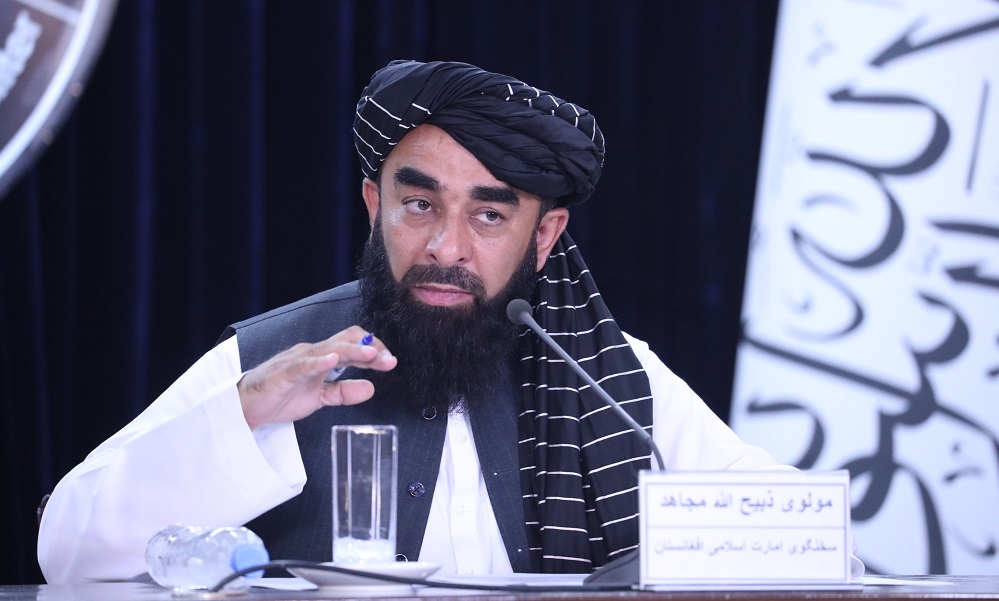The Taliban spokesperson indicated future participation in talks would depend on the meeting’s agenda and targets.
The third round of United Nations-led Doha meeting, aimed at exploring engagement with Afghanistan, concluded with no pledges of reform from the Taliban or concessions from the international community.
The two-day meeting in Qatar, which finished on Monday, brought together representatives from several international organisations and special envoys for Afghanistan from nearly two dozen countries.
UN Undersecretary-General for Political and Peacebuilding Affairs Rosemary DiCarlo, who chaired the meetings, described the discussions as “constructive” and “useful”.
“This is the first time such a broad cross section of the international community and the de facto authorities have had the opportunity to hold such detailed discussions,” DiCarlo stated at the post-event press conference.
Sunday marked the first time the interim government of Afghanistan, the Taliban, have participated in these talks since UN Secretary-General Antonio Guterres initiated the Doha meetings a year ago.
The group was not invited to the first Doha meeting, and did not attend the second one in February after they insisted on excluding Afghan civil society members and demanded recognition as the legitimate rulers of the country.
The meetings have yet to yield significant breakthroughs.
Participants agreed to continue engagement, but DiCarlo emphasised that recognition of the Taliban by the UN would not occur unless the Taliban lifted restrictions on women’s education and participation in public life.
“Afghanistan cannot return to the international fold, or fully develop economically and socially, if it is deprived of the contributions and potential of half its population,” DiCarlo said.
She also clarified that recognising the Taliban as the legitimate government of Afghanistan is not the UN’s mandate but a decision for individual countries.
Despite 16 countries maintaining embassies in Afghanistan, the international community has withheld recognition of the Taliban due to its non-inclusive governance and suppression of women’s rights.
Although not officially on the agenda, women’s rights were a recurring topic during the discussions, which also focused on developing a private business sector and supporting the Taliban’s anti-narcotics efforts.
Taliban delegation head Zabihullah Mujahid said that the Taliban were not expecting a breakthrough in the meetings, and that the gathering was meant for mutual understanding.
“The achievement is that every country wants to support Afghanistan,” he said.
Mujahid, also the Taliban’s chief spokesperson, took to X to call for further international cooperation.
“Afghanistan’s messages have been conveyed to all participating countries,” he said.
He added that promises were made during the meeting to lift restrictions on banking and economic avenues.
Currently, Afghanistan’s banks remain excluded from the global banking system and the SWIFT financial network.
Exclusion of women, civil society from talks
The UN has faced criticism for excluding Afghan civil society activists to ensure Taliban participation.
DiCarlo emphasised that the Taliban were informed about the necessity of women’s involvement in public life, while simultaneously defending the decision to exclude civil society groups in Doha.
She also underscored the significance of direct dialogue with the de facto authorities and expressed cautious optimism about future progress, noting the Taliban’s current engagement in the discussions.
Three prominent Afghan women declined the UN’s invitation for subsequent talks in Doha.
“We have a mandate to support this process [of talks]. Our belief was to bring the de facto authorities and special envoys together for direct talks,” DiCarlo said. “Regrettably, the de facto authorities will not sit across the table with Afghan civil society in this format.”
Mujahid indicated future participation in talks would depend on the meeting’s agenda and targets.
No date has been set for the next round of UN-led Doha meeting on Afghanistan.







